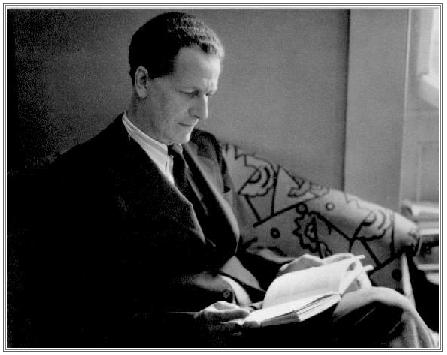In Celebration of the Human Voice - The Essential Musical Instrument
Home | Doo Wop | Barbershop | World | Contemporary | Christian | Vocal Jazz | Choral | Christmas | Instructional | Arrangements
Classical | Opera | Musicals | Personality | Young Singers | Disney | Videos | Songs | The Artists

Frank Martin Biography

Click Here for Sheet Music and Songbook Vocal Arrangements
The freelance composer and teacher Frank Martin was born on September 15, 1890, in Geneva and died on December 24, 1974, in Naarden (Holland). Frank Martin was born into a family of hugeunots who fled from the region of Montelimar in 1754 and settled in Geneva. He grew up in Geneva as the son of the vicar Charles Martin and attended the classical college there until completion of his undergraduate studies. Frank Martin learned to play the piano very early. At the age of 12 (1903) he had the opportunity of hearing St. Mathew's Passion by Johann-Sebastien Bach in Geneva. The emotions that Martin felt were very decisive and influenced his first compositions. Frank Martin never attended a conservatory but studied composition from 1906 onwards under Joseph Lauber (1864-1952) who had taught in Geneva since 1901. From 1908 onwards he studied (for two years) mathematics and physics at the University of Geneva but did not complete these studies, choosing instead to devote himself entirely to music. His first success came in 1911: his 'Trois poemes paiens' (1910) were performed at the Festival of Musicians in Vevey. Hans Huber (1852-1921) and Friedrich Klose (1862-1942) encouraged him to continue with his compositions. In 1918 Martin married Odette Micheli who gave birth to their son Renaud in 1922. The following years were determined by numerous travels. The couple lived in Zurich between October 1918 and June 1920, for a certain time in Rome and thereafter in Paris. During the season 1924/1925 Martin was responsible for the scenic music of a marionett theatre in Paris which went bankrupt shortly after. He had little contact with other composers other than Arthur Honegger, Benjamin Britten and Marcel Mihalovici. It was around this time that his relationship with Odette began to crumble, ending with a divorce in 1930. In 1931 he married Irene Gardian. This marriage, which resulted in the birth of three daughters; Francoise (1932), Pernette (1935) and Adrienne (1937), saw a tragic end in 1939 when Irene died of septicemea. Frank Martin contributed heavily to the music scene of Geneva. In 1926 he founded the 'Societe de Musique de chambre' (Chamber Music Society) of Geneva which he conducted as a pianist and harpsichordist. He also wrote for the 'Tribune de Geneve' as a music critic. His extensive activities were rewarded with the position of the professor of chamber music at the conservatory in Geneva from 1930 until 1933 and from 1941 until 1946. In 1926 Martin became acquainted with Emile Jaques-Dalcroze (1865-1950) and his institute of eurythmics and music pedagogy. He studied there for two years before teaching rhythm theory and improvisation there himself from 1928 until 1938. He was unable to succeed Emile Jaques-Dalcroze in 1950 due to his position in Cologne. In 1933 he became the artistic director of the 'Technicum Moderne de Musique', a private music school founded by Zina and Serge Popovitzky in Geneva where he taught harmony, composition and chamber music. The school closed in 1940 due to bad management and the threat of war. The last diploma was given to the Dutch flautist Maria Boeke who married Martin in 1940. Martin became acquainted with Arnold Schoenberg's theory of dodecaphony following 1933. His Concerto I for Piano and Orchestra (1933-1934), world premiered in 1936, bears witness to his profound interest in this technique. From 1940 onwards his compositions began receiving national recognition: 'l'Oratorio Le vin herbe' written for Robert Blum (1900-1994) and his 'Choeur madrigal de Zurich'. International renown followed with his 'Petite symphonie concertante' (1944-1945), commissioned by Paul Sacher and world premiered in 1946. In 1940 Martin signed a contract with Universal Edition in Vienna. In 1942 he was elected president of 'l'Association des Musiciens Suisses' (Association of Swiss Musicians) later the 'Association Suisse des Musiciens' (Swiss Association of Musicians). Other distinctions followed (1947: compositions prize of the Association of Swiss Musicians, 1949: doctor honoris causa from the University of Geneva) and bore witness to his ever increasing renown. In 1946 his family settled in Amsterdam where Martin composed the oratorio-passion 'Golgotha' (1945-1948) and fathered two children Jan Frank (1946) and Anne-Therese (1949). Between 1950 and 1957 Martin taught composition at the music school in Cologne after succeeding Philipp Jarnach (1892-1982). One of his students was Karlheinz Stockhausen. In 1956 the Martins left Amsterdam for Naarden. This was the period during which his famous works for musical theatre saw their world premiere; the National Opera in Vienna premiered the opera 'La tempete' (1952-1955), 'Le Mystere de la Nativite' (1957-1959) was premiered in Salzburg in 1960. The final years of the composer, during which he travelled to the United States and Israel, were extremely productive and inspired.
Frank Martin VideosEstonian Philharmonic Chamber ChoirMass for Double Choir (Kyrie)Conductor Kaspars Putnins. Live in Milton Court Hall, London Barbican Centre |
Select a Category |
Want to Sing? - Find a Chorus Near You
List of Choruses by State | List of Choruses by City

